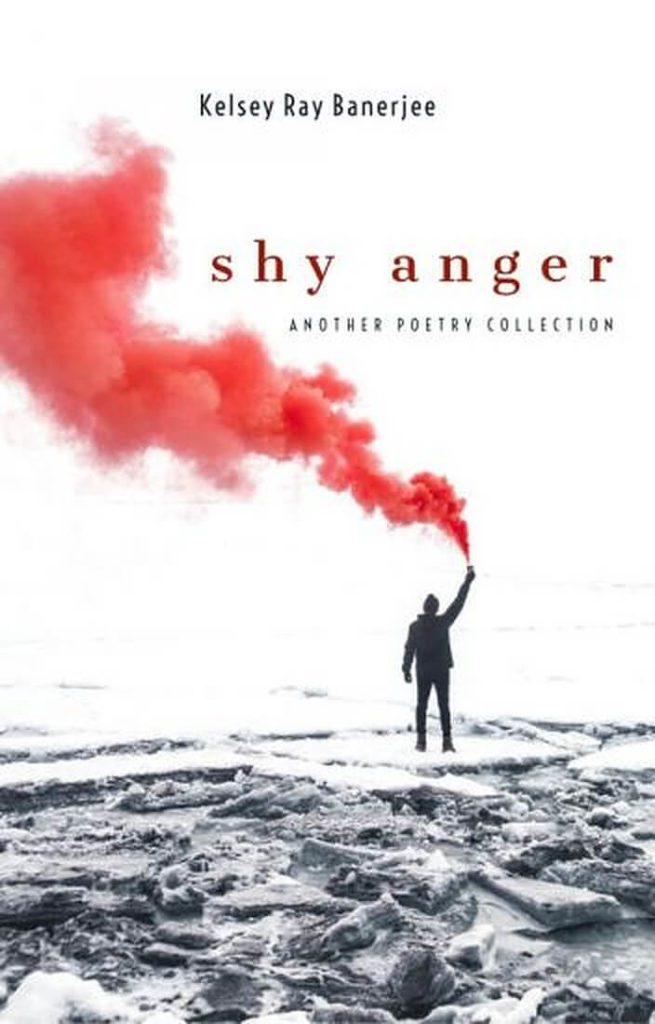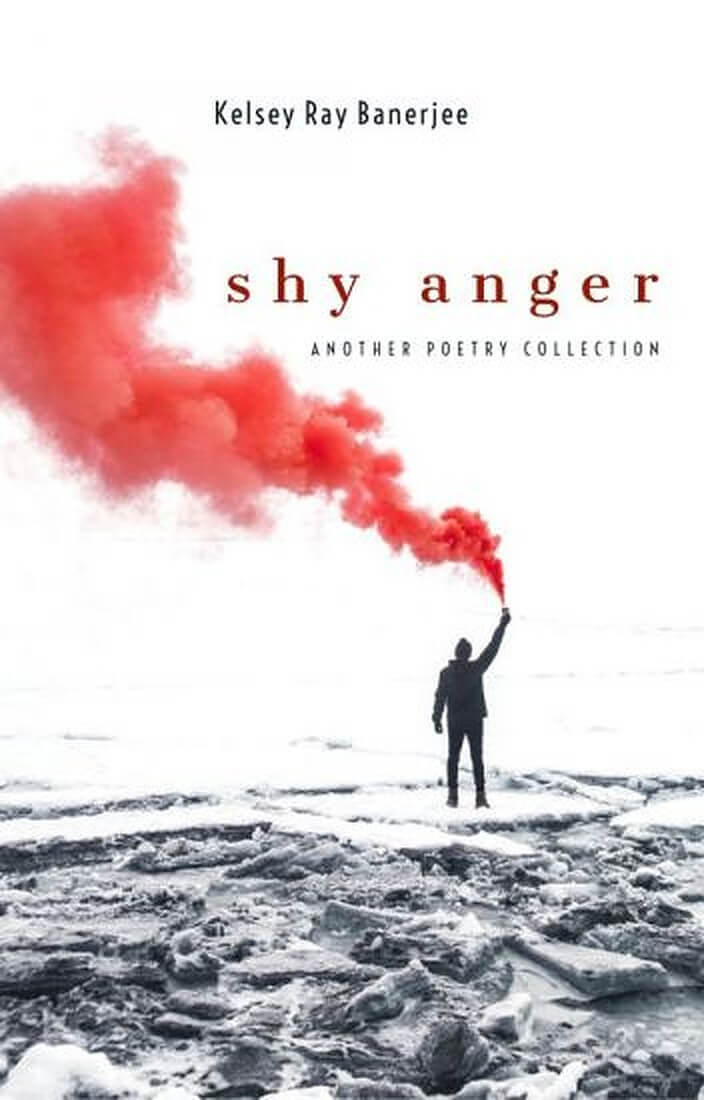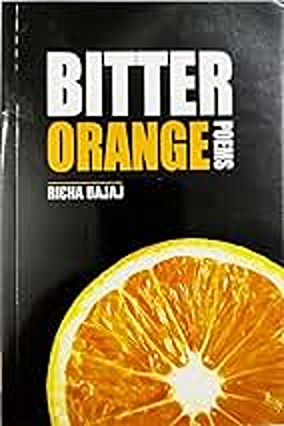Enakshi reviews poems by Kelsey Ray Banerjee, Shy Anger, exclusively for Different Truths.

Book: Shy Anger
Poet: Kelsey Ray Banerjee
Publisher: Self-published
Rating: 3.5/5
Every human comprises vices and virtues. The battle between the two is often a bone of contention though. To be able to understand the diabolical effect vices have on our mind is a different ball game altogether. Based on a number of topics ranging from understanding emotions, identifying their source/agent, experiencing the changes these emotions bring about to accepting them to be omnipresent and also omnipotent — this collection of 100 poems explores the pathos and ethos that govern the key emotion — anger. Often anger is passive and more harmful. The poet deftly portrays the aftermath of experiencing situations where passive aggression or even explosive anger deteriorate the state of mind and its well-being.
If I have understood it right, the poet uses the experiences of a ‘wanderer’, who is the poet herself in the garb of a free-spirited and free-willed individual, to form these free verses. The poetry collection is divided into three parts: Logos, Pathos and Ethos. Ethos, pathos and logos together are the three modes of persuasion (first defined by Aristotle). These modes are also referred to as ‘The Appeals’ that come in handy to understand the art of effective speaking or writing. Here, I think ‘Logos’ is a metaphorical reference for the symbols or signs that help us identify anger, ‘Pathos’ is the quality of experience we have when our mind is clouded by anger and ‘Ethos’ consists of several allusions that establish the credibility of the poet. Using these three segments along with vivid imagery and metaphorical references, the poet has designed a book so apt that it will cater to all the literature lovers.
Anger is the result of either injustice or disagreement. Thus, the poet covers various sub-topics like that of unjustified squabbles, wars, violence, brutality and criminal offences. The aim of these poems is to help humans regain agency or take control of self. The writing style of the poet is something that stuck with me because of its ambiguity and relevance. Each poem begins on a note that shows how despondent the speaker is but at the end of it all, there is hope.

Anger is the result of either injustice or disagreement. Thus, the poet covers various sub-topics like that of unjustified squabbles, wars, violence, brutality and criminal offences. The aim of these poems is to help humans regain agency or take control of self. The writing style of the poet is something that stuck with me because of its ambiguity and relevance. Each poem begins on a note that shows how despondent the speaker is but at the end of it all, there is hope. Like ‘Sweet Limes’ describes the sour scent of the limes but the hope of new lime plants sprouting and ending up being sweet is something to look forward to. Poems like ‘On the Daily’ talk about the emotional antithesis- the confusing world we live in where rules are bent, views changed, and words get minced. ‘Free Trial’ exhibits the irony of our lives where the actual individual is useless because everything is governed by technology! Some of the most beautiful metaphorical examples were that of a sponge, grey ice, shell and crawfish.
The title of the book has been adapted from one of the poems that have the same name ‘Shy Anger’. Like mentioned earlier, this poem, too, describes the dormant nature of anger and how it possesses the calibre of annihilating whatever comes in its way once it has been summoned. As long as the anger is in the hiding, it is ‘like a shell in the sea’.
Poetry is not everyone’s cup of tea, for the heavy use of metaphor and vivid imagery can often sound very baffling to the non-lovers of poetry. Luckily for me, I got a chance to read Shy Anger that explores the pathos of the human mind and makes you think.

Poetry is not everyone’s cup of tea, for the heavy use of metaphor and vivid imagery can often sound very baffling to the non-lovers of poetry. Luckily for me, I got a chance to read Shy Anger that explores the pathos of the human mind and makes you think. Kelsey Ray is a copywriter who believes in making her voice heard and words read rather than writing for books that gather dust in the University library. She accomplishes that dream through this book!
Overall, Shy Anger is a recommended read. However, once you decide to pick this book, brace yourselves for a mind-boggling ride because most of the poems can only be understood if you read them twice or with absolute attentiveness. There are some poems that I failed to understand completely. Maybe I was not in the right frame of mind then. Go for this one!
Photos sourced by the reviewer





 By
By
 By
By
 By
By
 By
By